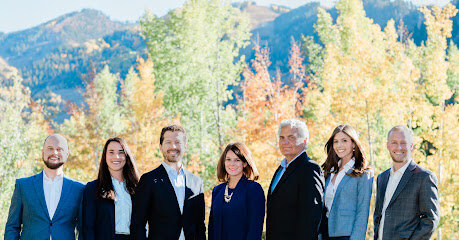Best Defamation Lawyers in Aspen
Share your needs with us, get contacted by law firms.
Free. Takes 2 min.
List of the best lawyers in Aspen, United States
About Defamation Law in Aspen, United States:
Defamation law in Aspen, United States, revolves around protecting individuals or businesses from false statements that harm their reputation. Defamation can be classified as either slander (spoken defamation) or libel (written defamation), and individuals who believe they have been defamed have legal recourse to seek damages.
Why You May Need a Lawyer:
You may need a lawyer if you believe you have been a victim of defamation and want to pursue legal action against the responsible party. A lawyer can help you understand your rights, assess the strength of your case, and guide you through the legal process of filing a defamation lawsuit.
Local Laws Overview:
In Aspen, United States, defamation laws are governed by state law, which sets the standards for what constitutes defamation and how it can be proven in court. It is important to note that there are also federal laws that may come into play in certain defamation cases. Understanding the nuances of both state and federal laws is crucial in navigating a defamation case in Aspen.
Frequently Asked Questions:
1. What is the difference between slander and libel?
Slander refers to spoken defamation, while libel refers to written defamation.
2. What do I need to prove in a defamation case?
To prove defamation, you typically need to show that the statement was false, published to a third party, and caused harm to your reputation.
3. Can opinions be considered defamation?
Opinions are generally protected under free speech laws and are not considered defamation unless they are presented as facts.
4. Is truth a defense to defamation?
Truth is a complete defense to defamation claims. If the statement in question is true, it cannot be considered defamatory.
5. Can businesses be defamed?
Yes, businesses can be defamed just like individuals. False statements that harm a business's reputation can be the basis for a defamation claim.
6. What damages can I recover in a defamation lawsuit?
Damages in a defamation lawsuit may include compensation for harm to reputation, emotional distress, and lost income or business opportunities.
7. How long do I have to file a defamation lawsuit in Aspen?
The statute of limitations for filing a defamation lawsuit in Aspen varies by state, but it is typically between one to three years from the date of the defamatory statement.
8. Can I sue for defamation if the statement was made online?
Yes, defamatory statements made online, including social media posts and comments, can be the basis for a defamation lawsuit.
9. Do I need to have proof of damages to win a defamation case?
Proof of actual damages may strengthen your defamation case, but in some cases, defamation per se (statements that are inherently defamatory) may not require proof of specific damages.
10. Can I settle a defamation case out of court?
Yes, defamation cases can often be resolved through settlement negotiations outside of court, which may result in a monetary settlement, retraction of the defamatory statement, or other remedies.
Additional Resources:
For more information on defamation laws in Aspen, United States, you can contact the Aspen Bar Association or the Colorado Bar Association for referrals to experienced defamation lawyers in the area.
Next Steps:
If you believe you have been defamed and require legal assistance, it is recommended to consult with a defamation lawyer in Aspen, United States, who can evaluate your case and advise you on the best course of action. You can schedule a consultation to discuss your situation and determine the appropriate legal steps to take in pursuing a defamation claim.
Lawzana helps you find the best lawyers and law firms in Aspen through a curated and pre-screened list of qualified legal professionals. Our platform offers rankings and detailed profiles of attorneys and law firms, allowing you to compare based on practice areas, including Defamation, experience, and client feedback.
Each profile includes a description of the firm's areas of practice, client reviews, team members and partners, year of establishment, spoken languages, office locations, contact information, social media presence, and any published articles or resources. Most firms on our platform speak English and are experienced in both local and international legal matters.
Get a quote from top-rated law firms in Aspen, United States — quickly, securely, and without unnecessary hassle.
Disclaimer:
The information provided on this page is for general informational purposes only and does not constitute legal advice. While we strive to ensure the accuracy and relevance of the content, legal information may change over time, and interpretations of the law can vary. You should always consult with a qualified legal professional for advice specific to your situation.
We disclaim all liability for actions taken or not taken based on the content of this page. If you believe any information is incorrect or outdated, please contact us, and we will review and update it where appropriate.








